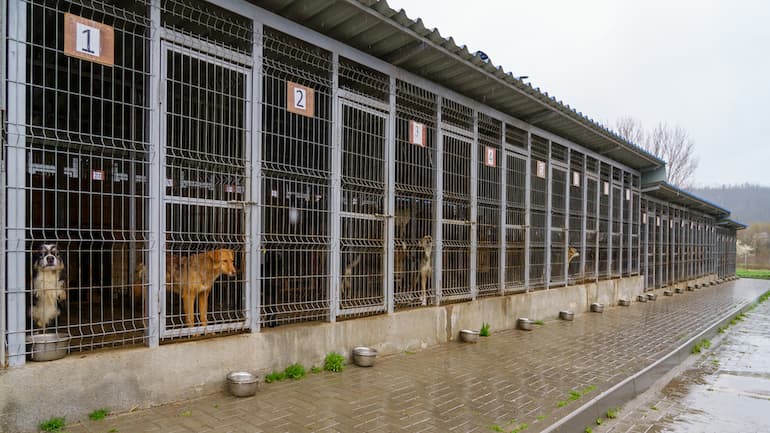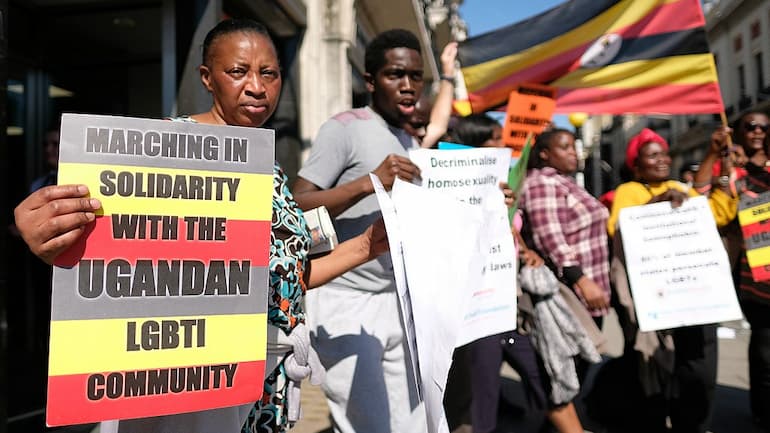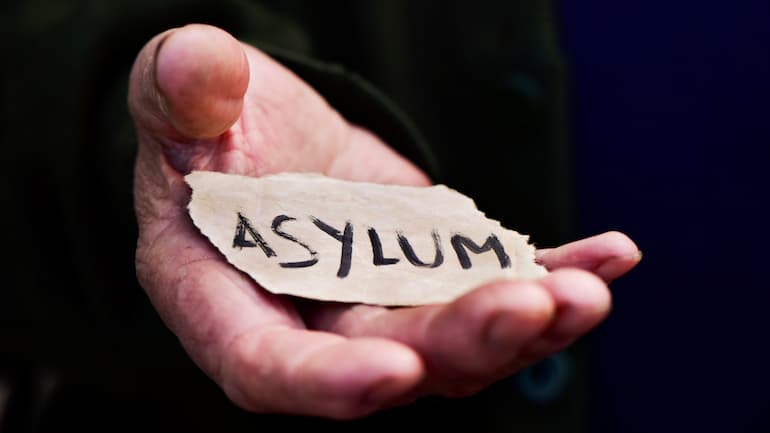
Wartime greenhouse gases, Maryland’s new Trans Health Equity Act, Haley’s possible Iowa surge and more
War on Ukraine generating greenhouse emissions equal to small country: The war in Ukraine is creating greenhouse emissions “equivalent to the annual emissions of a country like Belgium,” writes Doug Weir, director of theConflict and Environment Observatory, in The Guardian. Overall, Weir writes, military actions are estimated to account for 5.5 percent of the world’s greenhouse gas emissions.
2023 confirmed as “hottest year on record:” The year was almost 1.5 Celsius points warmer than 2022, reports the CBC. In addition, July and August 2023 were the warmest two months ever recorded.
Two developments regarding police brutality cases: The City of Memphis city council has voted to oust its police chief one year after Tyre Nichols’ violent death at the hands of a group of Memphis police officers, reports PBS. Cerelyn “CJ” Davis had served in the position since 2021. Meanwhile, the Minneapolis police officer who blocked bystanders who tried to help the late George Floyd as he was suffocated by Derek Chauvin’s knee will not have his case civil case heard by the U.S. Supreme Court (KTLA). Tou Thao had appealed his 2022 civil conviction to the high court, alleging prosecutorial misconduct by his lawyers.
Maryland’s new law guarantees Medicaid coverage for numerous transgender procedures: The new Trans Health Equity Act in Maryland ensures the state’s Medicaid fund will pay for “medically necessary” procedures determined to include, among other things, hormone therapy and lab testing, hair removal and transplants; facial, “top” and “bottom” surgeries; and reversal of gender transition, reports the Washington Blade.
Haley may be surging: With polling showing Nikki Haley pulling within 12 percentage points of former President Donald Trump in New Hampshire for the Republican presidential nomination, some politicos are saying the South Carolinian may perform more strongly in Iowa next week than projected, reports The Hill. Haley, though a distant second to Trump’s 51+ percentage polling in Iowa, is in a virtual tie for second with Florida Gov. Ron DeSantis at around 18 percent. Meanwhile, Trump has launched a new “birther” conspiracy theory against Haley, reports NBC News.
(photo courtesy Wikimedia Commons)

Overwhelmed U.S. animal shelters, calls for surrogacy bans, climate change and antibiotic resistance, more
Overwhelmed U.S. shelters took in 250,000 more animals in 2023, most of them dogs: Information from 7,000 animal shelters nationwide shows a 250,000 increase in 2023 over 2022 in the number of animals surrendered to shelters, reports Shelter Animals Count. Dogs are being turned in more often, experts say, because of financial concerns. The increase in surrendered animals includes puppies and purebred animals, writes CBS News.
People in rural areas have greater obesity risks: People of Color already experience greater rates of obesity because of historic inequities in health care access, but a new study says those disparities are worsened in particular for People of Color who live in rural areas, reports the University of Rhode Island. In addition, rural areas show a higher rate of obesity overall, leading to higher rates of type 2 diabetes and increased rates of death, says Steve Cohen, an associate professor of health studies at the University of Rhode Island.
Pope Francis calls for ban on surrogacy: The leader of the Catholic Church called Monday, in his “state of the world” speech, for surrogate parenting to be banned worldwide, reports PBS. Pope Francis, who late last year sanctioned “blessings” for same-sex unions, labelled surrogacy “uterus for rent” and an ethical violation. Surrogate parenting is when a person bears a child through pregnancy for a fee, paid by a couple seeking to have children but unable to conceive themselves. The practice is currently banned in Spain and many parts of Europe, PBS writes. Some attribute the increased attacks on surrogacy as facet of conservative attacks on LGBTQ+ rights, writes the CBC.
Gender transition surgery in Ohio banned: A week after vetoing a legislative ban on all gender-affirming care for minors, Ohio Gov. Mike DeWine has announced a ban on gender transition surgeries only, for minors. The ban is expected to have little impact: a Reuters report from October 2022 indicates less than 300 youths nationwide annually are documented to receive either “top” surgery (removal of breasts) or genital surgery (reconstruction of genitals to match their chosen identity).
Climate change may increase challenge of antibiotic resistance: Labelling climate change and antibiotic resistance as “two of the biggest health issues of our time,” several researchers are exploring how the increased flooding and heat caused by climate change could be increasing the spread of bacteria that is resistant to antibiotics, reports Nature Magazine. Factors at play include how disasters caused by climate change can lessen access to sanitary water; possible evolution in bacteria triggered by higher temperatures; and differences in how people interact with each other when facing climate change crises or natural disasters.

Climate change and Hispanic Americans, prescription drugs from Canada, Uganda’s anti-LGBTQ+ law, smartphones as envirometers, Perry school shooter and Discord
Hispanic, Latino Americans hit hardest by climate change: More than 70 percent of U.S. Latino adults say climate change is already affecting their local community, according to a new report by the Hispanic Access Foundation. In addition, more than half of the country’s Hispanic/Latino residents live in states with the highest levels of climate-change threats, reports Public News Service.
Florida can import prescription drugs from Canada: With the United States’ prescription drug prices among the highest in the world, the FDA has authorized Florida to be the first state to import prescription drugs from Canada, reports NPR. The pharmaceutical industry is vowing to fight the decision.
Ugandan LGBTQ+ people suffer under new “draconian” law: A new law in Uganda that issues the death penalty for “aggravated homosexuality” and requires citizens to tell law enforcement about suspected homosexuals is causing international concern while earning favor from some fellow African countries, including Burundi, Ethiopia, Ghana, Kenya, and Zambia, reports The Guardian.
Perry school shooter used racial slur just before attack: The 17-year-old who killed a sixth-grader and injured seven others before taking his own life is believed to have used a racial slur on a Discord account just before the morning attack, reports NBC News. In addition, the killer was believed to belong to a Discord group devoted to discussing school shootings.
Future smartphones may become “envirometers:” Your phone may soon be able to measure on-site, in-home air quality and smoke levels (rather than from weather stations), thanks to technology developed by an Israeli company, reports Axios. Worldwide, poor air quality outdoors and indoors contributes to 7 million premature deaths (World Health Organization).
(photo credit: Demonstration in 2018 in London against Uganda’s already-draconian laws against homosexuality, courtesy Alisdare Hickson on Wikimedia Commons)

Idaho abortion law stays for now, immigration update, and the question of teaching religion in public schools
Actions by Mexican immigration officials appear to lower U.S. border crossings: U.S. illegal border crossings have dropped by about 75 percent since December because of new steps being taken by Mexican authorities, reports NBC News. Immigrants seeking asylum from Venezuela and some other Latin American countries, are finding themselves stopped on buses and redirected to southern Mexico or Venezuela. Read here about what led to the change in Mexican officials’ immigration enforcement, and the experiences of some migrants.
Idaho’s super-strict abortion law to stand until at least April: An Idaho law that imposes a five-year prison sentence on a doctor who performs an abortion at any time in a woman’s pregnancy will stay in effect until at least April, the U.S. Supreme Court ruled Friday (Mother Jones). The Biden administration had challenged the law, which allows abortions to save the mother, as so vague as to be unconstitutional, and had asked for a hold on the ban.
Should public elementary, middle schools teach religion? A Hindu diversity, equity and inclusion educational consultant says yes. Read in Interfaith America why Smita Garb says it’s important for even young students to receive education about all the world’s religions “in a culturally sensitive way that considers students who religiously identify with the faith being studied and those who identify with another religion (or lack thereof).”

